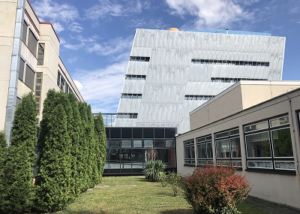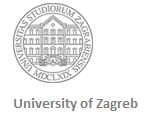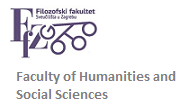Home » 2011 (Page 4)
Yearly Archives: 2011
English Baroque Poetry (Ciglar Žanić)
Course title: English Baroque Poetry
Instructor: Prof. Janja Ciglar-Žanić
ECTS credits: 6
Status: elective
Semester: 7th and 8th semester
Enrollment requirements: completed 6th semester
Course description:The course will be concerned with the earlier seventeenth-century English poetry from the point of view of its close relationship/ identity with the European poetry of the time. Baroque will be understood as a literary period dominating the second half of the sixteenth and the first half of the seventeenth century in the majority of European cultures including, the discussions will be attempt to show, English literature of the time. Concettism as its main feature will be studied together with other rhetorical figures which hallmark the poetic period of Baroque. Special attention will be paid to the so-called Metaphysical school in English poetry which occurs at the beginning of the seventeenth century but other poets outside the original designation “Metaphysical” will also be studied. Both secular and devotional poetry of the period will be analyzed extensively.
Objectives: The main objective of the course will be to re-locate English earlier seventeenth-century poetry from the Renaissance proper into post-Renaissance movement known in the majority of European countries as Baroque. The study of poetics and rhetoric of the mentioned poetry will be in the centre of attention in this literary-historical procedure.
Course requirements: Class work (regular attendance at lectures and active class participation), various section-specific assignments (an oral presentation), and a final essay—style exam.
Week by week schedule:
Week 1: Introduction: Baroque as a literary period.
Week 2: Baroque (continued).
Week 3: Terms and concepts, comparison: Mannerist, Baroque, Metaphysical.
Week 4: Concettism in English Baroque poetry.
Week 5: The Elizabethan world picture as a background of Baroque imagery.
Week 6: Petrarchan topoi and their Baroque transformations.
Week 7: John Donne: from Songs and Sonets (“The Canonization”, “The Sun Rising”, “The Good Morrow”, and “A Valediction: Forbidding Mourning”).
Week 8: John Donne: from Holy Sonnets.
Week 9: George Herbert: from The Temple (“Easter Wings”, “Jordan” (I), “Jordan” (II), “The Pulley”, “The Forerunners”, and “Virtue”).
Week 10: Henry Vaughan: from Silex Scintillans (“The Retreate” and “Regeneration”).
Week 11: Richard Crashaw: from Carmen Deo Nostro (“The Weeper”).
Week 12: Andrew Marvell: from Collected Poems (“To His Coy Mistress” and “The Garden”).
Week 13: Thomas Traherne: from Commentaries of Heaven (“Shadows in the Water”).
Week 14: Ben Jonson: from Underwood (“My Picture Left in Scotland”).
Week 15: Final exam.
Required reading:
Gardner, Helen (ed), The Metaphysical Poets, Harmondsworth [etc.]: Penguin Books, 1988.
Grierson, Herbert J. C (ed), Metaphysical Lyrics and Poems of the Seventeenth Century: Donne to Butler, London, Oxford & New York: Oxford UP, 1972.
Sidney, Philip, An Apology for Poetry, in D. J. Enright & Ernst de Chickero (eds.), English Critical Texts, London: Oxford UP, 1962; 12-17.
Johnson, Samuel, Lives of the English Poets, vol. 1, London: Oxford UP, 1961; 3-49.
Eliot, T. S, “The Metaphysical Poets”, in: D. J. Enright & Ernst de Chickero (eds), English Critical Texts, London: Oxford UP, London, 1962, 302-311.
Ciglar-Žanić, Janja, Domišljato stvoren svijet: Barok u engleskoj književnosti, Zagreb: Slap, 2008.
Ciglar-Žanić, Janja. “Fatal Fascination or Calculated Choice: The Conceit in Seventeenth Century English Poetry”, Studia Romanica et Anglica Zagrabiensia 31-31, 1986/ 87; 3-20.
Ciglar-Žanić, Janja. “Koliko je metafizička engleska metafizička poezija?”, Umjetnost riječi 1, Zagreb, 1988; 73-92.
Ciglar-Žanić, Janja. “Barokno pjesništvo, englesko i hrvatsko: značenje nekih analogija”, Književna smotra, XXI, nos. 69-72, 1988; 165-172.
Ciglar-Žanić, Janja. “Neki aspekti engleskog književnog baroka: Formalni manirizmi i njihove funkcije u engleskom postrenesansnom pjesništvu”, in Fališevac, Dunja, and Živa Benčić (eds), Književni barok, Zagreb: Zavod za znanost o književnosti, 1988; 191-223.
Curtius, Ernst Robert, European Literature and the Latin Middle Ages, Princeton: Princeton UP, 1973; 273-301.
Ford, Boris (ed), From Donne to Marvell: The New Pelican Guide to English Literature, 1988.
Kravar, Zoran, “Književnost 17. stoljeća i pojam ‘barok’”, in Fališevac, Dunja, and Živa Benčić (eds), Književni barok, Zagreb: Zavod za znanost o književnosti, 1988; 7-48.
Pavličić, Pavao, “Manirizam i barok: jedno ili dvoje?”, in Fališevac, Dunja, and Živa Benčić (eds), Književni barok, Zagreb: Zavod za znanost o književnosti, 1988; 49-71.
Praz, Mario. The Flaming Heart, New York: The Norton Library, 1973; 204-263.
Segel, Harold B. The Baroque Poem: A Comparative Survey, New York: Dutton Paperback, 1974; 12-142.
Warnke, Frank J, Versions of Baroque: Terms and Concepts, New Haven & London: Yale UP, 1975; 1-20.
Recommended reading:
Empson, William, Seven Types of Ambiguity, London: Chatto & Windus, 1956.
Fališevac, Dunja, Poezija Dživa Bunića Vučića (PhD dissertation), Zagreb, 1983.
Forster, Leonard, The Icy Fire, London: Cambridge UP, 1979.
Hocke, Gustav René, Svijet kao labirint: manira i manija u evropskoj umjetnosti od 1520 do 1650 i u suvremenosti, translated by Nadežda Čačinović—Puhovski, Zagreb: Biblioteka August Cesarec, 1991.
Keast, William R (ur), Seventeenth-Century English Poetry: modern essays in criticism, New York: Oxford UP, 1962.
Leishman, J. B, The Art of Marvell’s Poetry, London: Hutchinson, 1972.
Lovejoy, Arthur O. The great chain of being: a study of the history of an idea. Cambridge (Mass) & London: Harvard UP, 1964.
Kravar, Zoran, Studije o hrvatskom književnom baroku, Zagreb: Nakladni zavod Matice Hrvatske, 1975.
Pavličić, Pavao, Rasprave of hrvatskoj baroknoj kjiževnosti, Split: Čakavski sabor, 1979.
Stein, Arnold. John Donne’s Lyrics. Minneapolis: University of Minnesota Press, 1962.
Sypher, Wylie, Four Stages of Renaissance Style: transformations in art and literature: 1400-1700, New York: Garden City & Doubleday, 1955.
Tuve, Rosemond. Elizabethan and Metaphysical Imagery: Renaissance poetic and twentieth-century critics, Chicago & London: The University of Chicago Press, 1972.
Vendler, Helen. The Poetry of George Herbert, Cambridge (Mass) and London: Harvard UP, 1975.
Wellek, René (ed), Concepts of criticism, Introduction by Stephena G. Nicholsa, Jr, New Haven & London: Yale UP, 1963.
Willey, Basil, The Seventeenth-Century Background: studies in the thought of the age in relation to poetry and religion, Harmondsworth & Ringwood: Penguin Books and Chatto & Windus, 1972.
Witherspoon,, Alexander M, and F. J. Warnke, Seventeenth—Century Prose and Poetry, New York: Harcourt, Brace & World, 1963.
5th semester: course schedule
UNDERGRADUATE PROGRAMME
SEMESTER 5 COURSE SCHEDULE
2021/22
(version from 09-22-2021 – check for updates)
_______________________________________________________________________________________
SEMANTICS OF THE ENGLISH LANGUAGE
(Dr. Milena Žic Fuchs)
Mon. 14.45 – 16.15, D6
Mon. 17:00 – 18:30, D6
CULTURES OF THE USA AND THE UK
Group 1 (Dr. Kristijan Nikolić)
Tue. 16:15 –17:45, A 105
Wed. 12:30 – 14:00, A 219
Group 2 (Dr. Kristijan Nikolić)
Tue. 17:45 – 19:15, A-105
Wed. 9:30 – 11:00, A 123
Group 3 (Dr. Alexander D. Hoyt)
Mon. 12:30 – 14:00, A 105
Wed. 14:00 – 15:30, A 105
Group 4 (Dr. Alexander D. Hoyt)
Mon. 10:15 – 11:45, A 314
Wed. 11:00 – 12:30, A 123
___________________________________________________
LITERARY SEMINARS – please visit the LINK
__________________________________________
3rd semester: course schedule
UNDERGRADUATE PROGRAMME
SEMESTER 3 COURSE SCHEDULE
2021/22
(version from 09-22-2021 – check for updates)
_____________________________________________________________________________________
CONTEMPORARY ENGLISH LANGUAGE 3
Group 1 (Dr. Ivana Bašić)
Tue. 11:45 – 13:15, D5
Fri. 14:00 – 15:30, D2
Group 2 (Marina Zubak Pivarski)
Mon. 12:30 – 14:00, A123
Tue. 9:30 – 11:00, A 105
Group 3 (Marina Zubak Pivarski)
Tue. 11:00 – 12:30, A 219
Wed. 11:45 – 13:15, A 105
Group 4 (Dr.Tea Raše)
Wed. 15:30 – 17:00, A 219
Fri. 13:15 – 14:45, A 105
Group 5 (Dr.Tea Raše)
Wed. 17:00 – 18:30, A 219
Fri. 14:45 – 16:15, A 105
Group 6 (Dr.Tea Raše)
Wed. 18:30 – 20:00, A 219
Fri. 16:15 – 17:45, A 105
LITERARY SEMINARS
(Semester 3 and 5 (Winter))
American Postmodernism and Popular Culture
(Dr. Sven Cvek)
Wed. 12.30 – 14.00, A 123
Fri. 10:15 – 11:00, A 123
Alternative Worlds in Contemporary British Fiction
(Dr. Iva Polak)
Tue. 17:45 – 18:30, D7
Fri. 15:30 – 17:00, D7
The course can completely move online following consultations with students.
Aspects of American Romanticism
(Dr. Jelena Šesnić)
Mon. 8:45 – 9:30, D3
Wed. 16:15 – 17:45, D2
British Romanticism: poetry
(Dr. Martina Domines Veliki)
Thur. 11:45 – 12:30, A 219
Fri. 9:30 – 11:00, A 105
Creating Place Out of Space: Early Australian Literature
(Dr. Tihana Klepač)
Mon 10:15 – 11:00, A 123
Tue. 12:30 – 14:00, A 105
Victorian novel. Poetics and Politics
(Dr. Tatjana Jukić Gregurić)
Tue. 11:45 – 13:15, A 123
Thur. 11:45 – 12:30, A 123
Victorian Literature: genres and issues
(Dr. Borislav Knežević)
Tue. 10.15 – 11.45, A-123
Thur. 10.15 – 11.00, A-123
Canadian Literature and Culture
Course title: Canadian Literature and Culture
Instructor: Dr. Vanja Polić
ECTS credits: 6
Status: elective
Semester: one semester, 4th or 6th (2012/13)
Enrolment requirements: completed Introduction in English Literature; enrolment in the 4th or 6th semester
Course description: The course will consist of a close reading and analysis of selected (representative) Canadian texts and of placing them into the context of Canadian culture, history and present times.
Objectives: The objective of this course is to acquaint the students with selected works from Canadian literature, fiction as well as non-fiction (some of the most prominent literary critics are Canadian: McLuhan, Margaret Atwood, Northrop Frye, Brian McHale, Linda Hutcheon, Simon During), and to enable students to place Canadian literature into a broader context of literatures written in English language (in “english” languages).
Course requirements: The finalgrade is based on continuous assessment which includes regular attendance, preparation for and participation in class, writing small assignments, timely submission of the final paper, and obligatory sitting for midterm and endterm exam. The paper is worth 35%, midterm and endterm exams are worth 50% and other elements of continuous assessment are worth 15% of the final grade. Students must fulfill all elements of continuous assessment.
Week by week schedule:
1st week: introduction, general info on the seminar
2nd week: a short introduction into Canada’s geography and the influence it exerted on Canadian history, culture and literature
3rd week: a short introduction into the Canadian history
4th week: multiculturalism and globalization: concepts that were coined in Canada. Also, a discussion about the diversity of Canadian society and the attempts to preserve it
5th week: introduction into literature: how Canadians perceive Can Lit: M. Atwood, Survival and N. Frye, Bush Garden and Mythologizing Canada.
6th week: historical overview of literature, traveller accounts and literature of the first immigrants (e.g. S. Moodie, C. Parr Traill)
7th week: overview of 19th and 20th century poetry (Confederation poets, as well as contemporary poets such as M. A. Klein, M. Atwood, L. Cohen, R. Kroetsch, et al.)
8th week: multiculturalism, 2nd part on the example of a short story: R. Mistry, «Swimming Lessons».
9th week: multiculturalism 3rd part: “the first settlers”, Inuit and “Indians”: a documentary Nunavuk and discussion on the current position of the First Nations in the multicultural society of contemporary Canada
10th week: a selection from the first settlers’ literature, e.g. E. P. Johnson, T. Highway, T. King et al.
11th week: identity in Canada (M. Atwood, Surfacing, J. Kogawa, Obasan)
12th week: identity in Canada: female identity: M. Laurence, A. Munro, M. Atwood, C. Shields (a selection of short stories and novels)
13th week: revision and preparation for the final exam
14th week: final exam
Reading:
Obligatory:
– Keith, W. J., Canadian Literature in English, Longman Literature in English Series; London and New York: Longman, 1985
– A New Anthology of Canadian Literature in English, D. Bennet, R. Brown ed., Don Mills, Ontario: Oxford University Press Canada, 2002
– Profiles of Canada, K. G. Pryke and W. Soderlund, 3rd ed., Toronto: Canadian Scholars’ Press Inc., 2003
– Riendeau, R. A Brief History of Canada, Markham, Ontario: Fitzhenry & Whiteside, 2000
– primary texts given in class
Additional:
– Atwood, M. Survival: a thematic guide to Canadian literature, Toronto: Anansiland and Stewart, 1972
– Frye, N. The Bush Garden: essays on the Canadian imagination, Toronto: Anansi, 1971
– Hutcheon, L., As Canadian as… Possible… Under the Circumstances!, Toronto: York University, 1990
– A Passion for Identity: Canadian Studies for the 21st Century, D. Taras and B. Rasporich, 4. ed., Scarborough, Ontario: Nelson Thomson Learning, 2001
– Internet: official sites on various aspects of Canadian society sponsored by Canadian Government
Shakespeare
Course title: Shakespeare
Instructor: Prof. Janja Ciglar-Žanić.
ECTS credits: 6.
Status: elective.
Semester: 3rd or 5th.
Enrollment requirements: completed 2nd or 4th semester.
Course description: The course will be concerned with a selected number of Shakespeare’s plays viewed in the light of new theories of literature and culture. A study of the new strategies of reading, developed in the last few decades (new historicism, cultural materialism, feminism, postcolonialism), will introduce the course. Each of the selected plays will be accompanied by different film productions of the corresponding play and the discussions will centre on the relationship between text and its visual presentations. Special attention will be paid to the reinscriptive practices in both textual criticism and film productions.
Objectives: The main objective of the course is to shed a new light on the traditional understanding and reading of the plays as well as on the plays themselves. An additional objective is to examine how Shakespeare’s texts function in a medium non-existent in Shakespeare’s time and how in both their textual and visual medium they are related to our present concerns.
Course requirements: Continuous evaluation: Class work (regular attendance at lectures and active class participation), a seminar paper (with an oral presentation), and two quiz– and essay—style exams on issues raised by plays covered in class and social and cultural issues as they relate to Shakespeare’s plays.
Week by week schedule:
Week 1: Introduction: Strategies of reading.
Week 2: Strategies of reading (continued).
Week 3: Shakespearean stage.
Week 4: King Lear: different readings with the emphasis on cultural materialist interpretation. Film clips: M. Elliott, Peter Brook, (BBC production).
Week 5: King Lear (continued).
Week 6: Othello: different readings with the emphasis on post—colonial and new historicist interpretations.
Week 7: Othello (continued).
Week 8: Mid—term exam.
Week 9: A Midsummer Night’s Dream: various reinscriptive practices in textual criticism and performance. Film clips: A. Noble, M. Hoffman, A. Popovski (Gavella Theatre production).
Week 10: A Midsummer Night’s Dream (continued).
Week 11: The Tempest: different readings with the emphasis on postcolonial interpretation Film clips: (the BBC production), D. Jarman, P. Greenaway (Prospero’s Books).
Week 12: The Tempest (continued).
Week 13: Concluding remarks.
Week 14: End—term exam.
Required reading:
– Orgel, Stephen, & A. R. Braunmuller (eds), The Complete Pelican Shakespeare, New York: Penguin, 2002.
– Barker, Francis, & Peter Hulme, “Nymphs and Reapers Heavily Vanish: The Discursive Con–Texts of The Tempest”, in: Drakakis, John (ed), Alternative Shakespeares. London & New York: Routledge, 1985; 191-205.
– Carter, Ronald, «The Renaissance: 1485-1660», in: Carter, Ronald, & John McRae (eds). The Routledge History of Literature in English. London & New York: Routledge, 1997; 57-126.
– Ciglar-Žanić, Janja, “Antikolonijalna Oluja: teorija i praksa suvremenih reinskripcija Shakespearea”, in: Neka veća stalnost: Shakespeare u tekstu i kontekstu, Zagreb: Zavod za znanost o književnosti Filozofskog fakulteta, 2001; 125-151.
– Dollimore, Jonathan, “King Lear (c. 1605–06) and Essentialist Humanism”, in Radical Tragedy: Religion, Ideology, and Power in the Drama of Shakespeare and his Contemporaries, Brighton: Harvester Press, 1984; 189-203.
– Girard, René, “The Course of True Love”, in A Theater of Envy: William Shakespeare; New York & Oxford: Oxford UP, 1991; 29-79.
– Greenblatt, Stephen J, “Learning To Curse: Aspects of Linguistic Colonialism in the Sixteenth Century”, in Learning to Curse: Essays in Early Modern Culture, New York & London: Routledge, 1992, 16-39.
– Gurr, Andrew, «The Shakespearean Stage», in: Greenblatt, Stephen (ed), The Norton Shakespeare, New York & London: W. W. Norton and Company, 1997; 3281-3301.
– Harrison, G. B, “Materials for the Life of Shakespeare”, in Introducing Shakespeare (3rd ed), Harmondsworth: Penguin Books, 1966; 29-75.
– Holderness, Graham, «Bardolatry: or, The cultural materialist’s guide to Stratford—upon—Avon», in: Holderness, Graham (ed), The Shakespeare Myth, Manchester: Manchester UP, 1998; 02-15.
– Jones, Norman, “Shakespeare’s England”, in: Kastan, David Scott (ed), A Companion to Shakespeare, Oxford: Blackwell Publishers, 1999; 25-41.
– Kott, Jan, “King Lear, or Endgame”, in Shakespeare Our Contemporary, transl. by Boleslaw Taborski, New York: Doubleday, 1966.
– Kott, Jan, “Titania and the Ass’s Head”, in Shakespeare Our Contemporary, transl. by Boleslaw Taborski, New York: Doubleday, 1966; 213-236.
– Neill, Michael, “Unproper beds: Race, adultery, and the hideous in Othello”, Shakespeare Quarterly, Vol. 40, No. 4 (Winter, 1989), 383—412.
– Newman, Karen, “‘And wash the Ethiop white’: femininity and the monstrous in Othello”, in Shakespeare Reproduced: The Text in History and Ideology (1987), 2nd ed, ed. Jean E. Howard and Marion F. O’Connor, Abingdon: Routledge, 2005.
– Tatspaugh, Patricia, “Performance history: Shakespeare on the stage 1660-2001”, in: Wells, Stanley, & Lena Cowe Orlin (eds), Shakespeare: An Oxford Guide, Oxford: Oxford UP, 2003; 525-549.
– Welsford, Enid, “The Fool in King Lear”, in: Kermode, Frank (ed), Shakespeare: King Lear, 1969; 137-149.
Recommended reading:
– Barber, C. L, Shakespeare’s Festive Comedy: A Study of Dramatic Form and its Relation to Social Custom, Princeton: Princeton UP, 1972.
– Bradley, A. C, Shakespearean Tragedy: Lectures on Hamlet, Othello, King Lear, Macbeth, London: Macmillan, 1904.
– Brooker, Peter, & Peter Widdowson (eds), A Practical Reader in Contemporary Literary Theory, Harlow [etc.]: Prentice Hall, 1996.
– Bulman, James C (ed), Shakespeare, Theory and Performance, London & New York: Routledge, 1996.
– Ciglar-Žanić, Janja, Domišljato stvoren svijet: Barok u engleskoj književnosti, Zagreb: Slap, 2008.
– Ciglar-Žanić, Janja, Neka veća stalnost: Shakespeare u tekstu i kontekstu, Zagreb: Zavod za znanost o književnosti Filozofskoga fakulteta u Zagrebu, 2001.
– Cox, John D, & David Scott Kastan (eds), A New History of Early English Drama, with an introduction by Stephen J. Greenblatta, New York: Columbia UP, 1997.
– De Grazia, Margreta, & Stanley Wells (eds), The Cambridge Companion to Shakespeare, Cambridge: Cambridge UP, 2001.
– Dollimore, Jonathan; & Alan Sinfield (eds), Political Shakespeare: Essays in Cultural Materialism, Manchester & New York: Manchester UP, 1985.
– Frye, Northrop, Anatomy of Criticism: Four Essays, Princeton: Princeton UP, 1957.
– — A Natural Perspective: The Development of Shakespearean Comedy and Romance, New York & London: Columbia UP, 1965.
– — Fools of Time: Studies in Shakespearean Tragedy, Toronto [etc.]: University of Toronto Press, 1996.
– Greenblatt, Stephen (ed), The Norton Shakespeare, New York and London: W. W. Norton, 1997.
– Harrison, G. B, Introducing Shakespeare (3rd ed), Harmondsworth: Penguin Books, 1966.
– Hattaway, Michael; Boika Sokolova, & Derek Roper (eds), Shakespeare in the New Europe. Sheffield: Sheffield Academic Press, 1994.
– Kastan, David Scott (ed), A Companion to Shakespeare. Oxford: Blackwell Publishers, 1999.
– Kermode, Frank (ed), Shakespeare: King Lear. 1969.
– Kott, Jan, The Bottom Translation: Marlowe and Shakespeare and the Carnival Tradition. Transl. by Daniela Miedzyrzecka & Lillian Vallee. Evanston, Illinois: Northwestern UP, 1987.
– Loomba, Ania, Gender, Race, Renaissance Drama, Bombay [etc.]: Oxford UP, 1992.
– Lupić, Ivan, Prijetvorni subject: transtekstualni okviri Shakespeareovih soneta, Zagreb: L biblioteka Zavoda za znanost o književnosti Filozofskog fakulteta Sveučilišta u Zagrebu, 2007.
– McDonald, Russ, The Bedford Companion to Shakespeare: An Introduction with Documents (2nd ed), Boston & New York: Bedford/ St. Martin’s, 2001.
– Parker, Patricia, & Geoffrey Hartman (eds), Shakespeare and the Question of Theory, London: Methuen, 1985.
– Schoenbaum, Samuel, William Shakespeare: A Compact Documentary Life, New York & Oxford: Oxford UP, 1987.
– Selden, Raman; Peter Widdowson, & Peter Brooker (eds), A Reader’s Guide to Contemporary Literary Theory, London [etc.]: Prentice Hall, 1997.
– Styan, John Louis, The Shakespeare Revolution: Criticism and Performance in the Twentieth Century, Cambridge: Cambridge UP, 1977.
– Swift Lenz, Carolyn Ruth; Gayle Greene; & Carol Thomas Neely (eds), The Woman’s Part: Feminist Criticism of Shakespeare. Chicago: University of Illinois Press, 1980.
– Tillyard, E. M. W, The Elizabethan World Picture, London: Chatto & Windus, 1943.
– Torbarina, Josip, “Predgovor”, in Shakespeare, William, San ivanjske noći. Transl. Milan Bogdanović. Redigirao Josip Torbarina. Zagreb: Matica hrvatska, 1970.
– Vickers, Brian, English Renaissance Literary Criticism, Oxford: Clarendon Press, 1999.
– Weimann, Robert, Shakespeare and the Popular Tradition in the Theater: Studies in the Social Dimension of Dramatic Form and Function. Schwartz, Robert (ed). Baltimore & London: The Johns Hopkins UP, 1987.
– Wells, Stanley, & Lena Cowe Orlin (eds), Shakespeare: An Oxford Guide, Oxford: Oxford UP, 2003; pp. 391-410.
Aspects of American Romanticism (archive)
Aspects of American Romanticism
Književni seminar akademska godina 2011/12.
Zimski semestar
Dodiplomski studij (2-3. godina)
Naziv kolegija: Aspekti američkoga romantizma (A, 19. st.)
Nastavnica: Dr. sc. Jelena Šesnić
ECTS-bodovi: 6
Jezik: Engleski
Trajanje: 3. ili 5. semestar; zimski
Status: Izborni
Oblik nastave: 1 sat predavanja + 2 sata seminara
Uvjeti za upis kolegija: Upisan 3. ili 5. semestar studija
_______________________________________________________________________________________
Cilj kolegija:
The period spans the decades from the 1820s to approximately the 1860s marked by the flowering of national literature in post-revolutionary times; the adoption and americanization of European ideas in so-called New England Transcendentalism, and the emergence of African American voices. Alternatively called the American Renaissance, the period testifies to the coming-of-age of American literature. The texts are a representative selection of the unprecedented surge of creative energy that left no aspect of social and personal life untouched (from religion, education, women’s rights to politics and abolition), and will thus guide is in our examination of the past to which the American present owes so much.
Sadržaj kolegija:
- R W Emerson: essays (selection); Walt Whitman: Leaves of Grass (selection)
- H D Thoreau: Walden (selection); essays („Civil Disobedience“, selection)
- Margaret Fuller: Woman in the Nineteenth Century
- Catherine Maria Sedgwick: Hope Leslie
- Frederick Douglass: Narrative of the Life of Frederick Douglass
- Herman Melville: Typee
Literatura:
A. Obvezatna
– Bercovitch, Sacvan. The American Jeremiad, Madison: The U of Wisconsin P, 1978.
(izbor)
– Pease, Donald. Visionary Compacts: American Renaissance Writings in Cultural
Context, Madison: U of Wisconsin P, 1987. (izbor)
– Pease, Donald, ed. National Identities and Post-Americanist Narratives, Durham: Duke
UP, 1994. (izbor)
– Rowe, John Carlos. At Emerson’s Tomb: The Politics of Classic American Literature. New York: Columbia UP, 1997. (izbor)
– Warren, Joyce, ed. The (Other) American Traditions: Nineteenth-Century Women
– Writers. New Brunswick, New Jersey: Rutgers UP, 1993. (izbor)
Način polaganja ispita: Kontinuirana evaluacija (kolokviji: mid-term + final; 40% ocjene); seminarski rad (6-7 kartica teksta; 30 % ocjene); pohađanje, vježbe, prezentacija, aktivnost na satu (30 % ocjene).
Dr. Alexander D. Hoyt, Senior Lector

CV
Education
| 2012 | Ph.D. in linguistics, University of Zagreb |
| 1996 | M.A. in linguistics, University of Zagreb |
| 1986 | B.A. iz linguistics, University of Pennsylvania |
Employment
| 2002 | Senior lector, English Department, Faculty of Humanities and Social Sciences, University of Zagreb |
| 1992-2002 | Foreign lector, English Department, Faculty of Humanities and Social Sciences, University of Zagreb |
| 1990/91 | English teacher, Center for Foreign Languages, Faculty of Humanities and Social Sciences, University of Zagreb |
| 1989/90 | English teacher, School for Foreign Languages (“Varšavska”), Zagreb |
Areas of interest
Historical sociolinguistics, Language and identity
Undergraduate courses
Translation workshop
Graduate courses
Historical Sociolinguistics
Academic Writing
Contemporary English language 4
Member
HDPL – Croatian Applied Linguistics Society
HUAmS – Croatian Association for American Studies
HFD – Croatian Philological Society
Book (in Croatian):
· Hrvatski jezik u Zagrebu: sociolingvistički pogled. Zagreb: Hrvatska sveučilišna naklada, 2012.
Selected works:
– 1992 “No mo’ više: Kako govori i što zna naš dvogodišnji bilingvalac”. In: Strani jezik u dodiru sa materinskim jezikom. Zagreb: Hrvatsko društvo za primjenjenu lingvistiku. Co-authored with Anja Nikolić-Hoyt.
– 1993 “A Sociolinguistic Analysis of the Zagreb Vernacular”. In: Sprach – Sprechen – Handeln: Akten des 28. Linguistischen Kolloquiums, Graz 1993. Tübingen, Max Niemeyer Verlag. 245-250.
– 1995 Milan Moguš, A History of the Croatian Language: Toward a Common Standard. Zagreb: Nakladni zavod Globus. Co-translated with Lelija Socanac.
– 1996 The Croatian Language in Zagreb: A Sociolinguistic Study. Master’s thesis. Faculty of Humanities and Social Sciences, University of Zagreb
– 1996 “‘Jezicna situacija’ kao sociolingvisticki termin”. Zbornik Hrvatskog filološkog skupa u Rijeci, 24.-25. lipnja. 37-41.
– 1998 “Language and Identity”. Suvremena lingvistika. 41/42. 221-226.
– 2001 Rudolf Filipovic i Damir Kalogjera (special issue eds), Sociolinguistics in Croatia, special 147th edition International Journal of the Sociology of Language (Joshua Fishman, main.ed.) Translated three articles and revised entire issue.
– 2007 “The Expression of Urban Identity in Croatian Hip-Hop Lyrics”. In: Jagoda Granic (ed.), Jezik i identiteti. Zbornik XX. znanstvenog skupa Hrvatskog društva za primijenjenu lingvistiku s međunarodnim sudjelovanjem.
– 2012 Building a historical corpus of Croatian correspondence. Zbornik XXIV. skupa Hrvatskog društva za primijenjenu lingvistiku. (in print).
– 2012 A Historical Sociolinguistic Analysis of the Written Correspondence of Vjekoslav Spinčić. Doctoral dissertation. University of Zagreb.

Dr. Vladimir Brljak (en)

CV
| 2015 | PhD in philology, University of Warwick |
| 2011 | PhD candidate, English and Comparative Literary Studies, University of Warwick |
| 2006-2018 | Junior Lecturer, Department of English, University of Zagreb |
| 2005-2011 | PhD candidate, Doctoral Programme in Literature, University of Zagreb |
| 2005 | BA, English Language and Literature, University of Zagreb |
Research Interests
English literature, especially c. 1500-1700; allegory; Shakespeare; Milton; history and theory of literature.
Select Bibliography
“Hamlet and Lameth”, Notes and Queries 59 (2011): 247-254
“Borges and the North”, Studies in Medievalism 20 (2011): 99-128
“Unediting Deor”, Neuphilologische Mitteilungen 112 (2011): 297-321
“An Allusion to Purgatory in Hamlet”, Notes and Queries 57 (2010): 379-380
“The Books of Lost Tales: Tolkien as Metafictionist”, Tolkien Studies 7 (2010): 1-34
“The Lutheran ‘Faustus’ in Foxe’s Acts and Monuments”, ANQ 23 (2010): 207-210
_______________________________________________________________
more info:
https://www.english.cam.ac.uk/people/Vladimir.Brljak/
Dr. Ivana Bašić

Curriculum vitae
| 2017 | PhD in linguistics, doctoral thesis „Reporting verbs as evidentials in research papers in English and Croatian“, supervisor Dr. Milena Žic Fuchs |
| 2008- | senior lector, English Department, Faculty of Humanities and Social Sciences, Zagreb University |
| 2001-2008 | lector, English Department, Faculty of Humanities and Social Sciences, Zagreb University |
| 2002-2005 | language instructor, Zagreb School of Economics and Management |
| 2000-2004 | English teacher, School of Applied Arts and Design, Zagreb |
| 1999 | BA in English and Croatian language and literature, Faculty of Humanities and Social Sciences, Zagreb University |
Research interests
Discourse analysis
Linguistic theories and their implications for language teaching
Undergraduate courses
Contemporary English language 1, 2, 3
Analysis of English texts
Cultures of the USA and the UK
Graduate courses
Idiomatic and Stylistic Features of the Croatian Language
Translation of Scientific and Academic Texts
Miscellaneous
Cambridge ESOL examiner (FCE, CAE, CPE)
Member of the national expert team for final highschool examinations in English
President of Croatian Association of University Lectors (2018 and 2020)
Coordinator of activities at the Zagreb division of Croatian Society for Applied Linguistics
Selected bibliography
MONOGRAPH
- Bašić, Ivana. (2020). Dokazivanje odnos prema znanju u jeziku znanosti. Zagreb: Hrvatska sveučilišna naklada.
RESEARCH ARTICLES
- Veselica-Majhut, S. and Bašić, I. (2013) „From foot to meter: Rendering of culture specific items in popular fiction translations from English to Croatian“, in: Peti-Stantić, A., Stanojević, M.-M. and Antunović, G. (ed.) Language Varieties between Norms and Attitudes. Frankfurt am Main: Peter Lang Verlag.
- Bašić, I. and Veselica-Majhut, S. (2017) „Explicit Author Reference in Research Articles in Linguistics in English and Croatian“, in: Cergol Kovačević, K. and Udier, S.L. (eds.) Applied Linguistics Research and Methodology, str. 271-286. Frankfurt am Main: Peter Lang Verlag.
- Bašić, I. (2019). “What gender are the characters in the Croatian Translations of Oscar Wilde’s The Happy Prince and Other Tales”, u: Značenje u jeziku – od individualnoga do kolektivnoga, str. str. 33-48.
Zagreb: Srednja Europa. - Bašić, I. (2020).“Verbs of visual perception as evidentials in research article texts in English and Croatian”, in: Pisanski Peterlin, A. and Mikolič Južnič, T (ur.)
Academic Writing from Cross-Cultural Perspectives: Exploring the Synergies and Interactions, str. 196-216. Ljubljana: Ljubljana University Press, 2020. - Bašić, I., Grubišić, M. and Veselica Majhut, S. (2020) Diskursno oblikovanje klimatskih promjena u anglofonim i hrvatskim izvorima informiranja. Suvremena lingvistika, 46 (2020), 89; 1-23
TEXTBOOKS
- Veselica-Majhut, S., Bašić, I., Zubak, M. (2007) Syntax workbook for university students of English, sveučilišni priručnik. Zagreb: FF press.
- Bašić, I. i Zubak Pivarski, M. (2013) A Reader for Contemporary English Language 1 and 2, sveučilišni priručnik. Zagreb: FF press.
- Bašić, I., Majerović, M. i Zubak Pivarski, M. (2016) Grammar Workbook for Contemporary English Language 1, sveučilišni priručnik. Zagreb: Hrvatska sveučilišna naklada.
- Bašić, I., Majerović, M. i Zubak Pivarski, M. (2018) Grammar Workbook for Contemporary English Language 2, sveučilišni priručnik. Zagreb: Hrvatska sveučilišna naklada.
FULL BIBLIOGRAPHY:
https://www.bib.irb.hr/pregled/profil/34351
Assoc. Prof. Snježana Veselica-Majhut

CV
| 2021 |
Associate Professor in the Dept. of English, University of Zagreb |
| 2015 | Assistant Professor in the Dept. of English, University of Zagreb |
| 2012 | PhD in Translation Studies, Universitat Rovira i Virgili, Spain |
| 2009 | Research Master in Translation and Intercultural Studies, Universitat Rovira i Virgili, Spain |
| 2005 | Senior lecturer in the Department of English |
| 2000 | MLitt. in British Cultural Studies, University of Strathclyde, UK |
| 1997 | Lecturer in the Department of English |
| 1988 | B.A. in English and Philosophy, University of Zagreb |
Research Interests
Discourse Analysis, Translation Studies, Relations of Language and Culture
Undergraduate Courses
Contemporary English Language 3
Analysis of Texts in English
Graduate Courses
Translation of Academic and Scientific Texts
Political and Legal Institutions in Croatia and English-Speaking Countries
Memberships
Hrvatsko društvo za primijenjenu lingvistiku
Hrvatsko društvo za anglističke studije
Selected Bibliography
° Syntax Workbook for Students of English. Zagreb:FFPress.2007.
° „Shoppingholičarka ili zaposlena žena“. Jezik i identiteti. urednica:Jagoda Granić. Hrvatsko društvo za primijenjenu lingvistiku. 2007. 681-688
° „Textual Analysis of Večernji List Front Page Headlines“. Studia Anglica et Romanica Zagrabiensia. No. 50. (2006):3-23 http://hrcak.srce.hr/index.php?show=toc&id_broj=1575
° „Intertekstualnost u novinskim naslovima“. Jezik i mediji: Jedan jezik: više svjetova. urednica: Jagoda Granić. Hrvatsko društvo za primijenjenu lingvistiku. 2006. 753-760
° „A Textual Analysis of the Embargo Column“. Studia Anglica et Romanica Zagrabiensia. VOL. XLVII-XLVIII (2002):537-551
Prof. Nataša Pavlović

CV
| 2022 | Professor in the Dept. of English, University of Zagreb |
| 2016 | Associate Professor in the Dept. of English, University of Zagreb |
| 2010 | Assistant Professor in the Dept. of English, University of Zagreb |
| 2007 | Ph.D. in Translation and Intercultural Studies, Universitat Rovira i Virgili in Tarragona, Spain |
| 2005 | D.E.A. in Translation and Intercultural Studies, Universitat Rovira i Virgili |
| 2000 | Senior Lecturer in the Dept. of English |
| 2000 | M.A. in Linguistics, University of Zagreb |
| 1996 | Lecturer in the Dept. of English |
| 1990 | B. A. in English and Spanish, University of Zagreb |
Research Interests
Translation Studies: process-oriented translation research, new technologies in translation and translation research, research methodology, translator education
Graduate Courses
Translation Theory
EU and International Organizations
Translation of Academic and Scientific Texts
Research in linguistics and translation studies: planning and methodology
Post-editing and machine translation quality assessment
Projects
COST action CA19102 – Language in the human-machine era (2020-), member of the Management Committee
Researching and teaching the use of new technologies in translation
(2018-2019)
Other roles
Editor, The Interpreter and Translator Trainer (Routledge, Q1)
Memberships
European Society for Translation Studies (EST)
TREC – Thematic network on empirical and experimental research in translation
Hrvatsko društvo za primijenjenu lingvistiku (HDPL)
Hrvatsko društvo za anglističke studije (HDAS)
Bibliography
Recent publications
Pavlović, N. 2015. Uvod u teorije prevođenja. Zagreb: Leykam international.
Pavlović, N. 2016. “Stocktaking and prospects: Five years of the translation track in the University of Zagreb’s Department of English.” In: Zovko Dinković, I. & Mihaljević Djigunović, J. (eds.) English Studies from Archives to Prospects 2 – Linguistics and Applied Linguistics. Newcastle upon Tyne: Cambridge Scholars Publishing. 165-181.
Pavlović, N. 2017. “Strojno i konvencionalno prevođenje s engleskoga na hrvatski: usporedba pogrešaka”. In: Stolac, D. & Vlastelić, A. (eds.), Jezik kao predmet proučavanja i jezik kao predmet poučavanja. Zagreb: Srednja Europa & HDPL. 279-295.
Antunović, G. i Pavlović, N. 2019. “Redaktura strojnih prijevoda – sve važniji prevoditeljski zadatak”. In: Matešić, M. & Vlastelić, A. (ed.). Jezik i um. Zagreb: Srednja Europa & HDPL. 147-167.
Pavlović, N. 2019. “Translation into one’s second or B language”. In: Hlavac, J. & Veselica Majhut, S. (eds.). Translating from Croatian into English: A Handbook with Annotated Translations. Zagreb: Hrvatska sveučilišna naklada. 13-26.
Pavlović, N. 2019. “Translating news reports”. In: Hlavac, J. & Veselica Majhut, S. (eds.). Translating from Croatian into English: A Handbook with Annotated Translations. Zagreb: Hrvatska sveučilišna naklada. 51-68.
Pavlović, N. 2019. “Translating medical research articles”. In: Hlavac, J. & Veselica Majhut, S. (eds.). Translating from Croatian into English: A Handbook with Annotated Translations. Zagreb: Hrvatska sveučilišna naklada. 133-153.
Pavlović, N. 2019. “Osnove engleske gramatike” In: Bujas, Ž. Novi englesko-hrvatski rječnik. Zagreb: Nakladni zavod Globus. 1866-1886. ISBN: 978-953-167-278-8
Šoštarić, M., Pavlović, N. and Boltužić, F. 2019. “Domain Adaptation for Machine Translation Involving a Low-Resource Language: Google AutoML vs. from-scratch NMT Systems” In: Esteves-Ferreira, J., Macan, J.M., Mitkov, R. & Stefanov, O.M. (eds.) Translating and the Computer 41. Geneva: Editions Tradulex. 113-124.
Pavlović, N. and Antunović, G. 2019. “A desirable profile of translation teacher: perceptions and needs in the Croatian context”. InTRAlinea.
Pavlović, N. and Stanojević, M.M. 2020. Znanstvena istraživanja jezika i prevođenja. Zagreb: Faculty of Humanities and Social Sciences, University of Zagreb – FFpress.
Bogusława Whyatt and Nataša Pavlović 2021. “Translating languages of low diffusion: current and future avenues”. The Interpreter and Translator Trainer, DOI: 10.1080/1750399X.2021.1917172
For a more detailed bibliography see:
ResearchGate
https://www.researchgate.net/profile/Natasa_Pavlovic6
Croatian scientific bibliography:
http://bib.irb.hr/lista-radova?autor=283993&lang=EN
Google Scholar Profile:
https://scholar.google.hr/citations?user=TTggWucAAAAJ&hl=en&oi=ao
Prof. Irena Zovko Dinković

CV
| 2021 | Full Professor at the Department of English, Faculty of Humanities and Social Sciences in Zagreb |
| 2020 | associate on the project SARGADA – Syntactic and Semantic Analysis of Complements and Adjuncts in Croatian (Croatian Science Foundation) |
| 2016 | organized a workshop on negation at the International ESSE conference in Galway, Republic of Ireland (with Gašper Ilc) |
| 2014 | Associate Professor at the Department of English, Faculty of Humanities and Social Sciences in Zagreb |
| 2009 | Assistant Professor at the Department of English, Faculty of Humanities and Social Sciences in Zagreb |
| 2007 | PhD in Linguistics from the Faculty of Humanities and Social Sciences in Zagreb (title of the thesis: Negation in English and Croatian) |
| 2007 | associate on the project Theoretical Cognitive Linguistic Research of Croatian and other Languages (Ministry of Science and Education) |
| 2003 | Senior Teaching Assistant at the Chair for the English Language, Dept of English, Faculty of Humanities and Social Sciences in Zagreb |
| 2002 | associate on the project Cognitive Linguistic Research of Croatian and English (Ministry of Science and Education) |
| 2001 | MA thesis (Semantic and syntactic relations in ditransitive constructions in English) |
| 1999 | attended the LSA Linguistic Institute at the University of Illinois, USA |
| 1998 | attended the Vilem Mathesius Lecture Series in Prague, Czech Republic |
| 1997 | associate on the project Semantic Fields and Syntax (Ministry of Science and Education) |
| 1996 | BA in English and French language and literature, Faculty of Humanities and Social Sciences, University of Zagreb |
| 1996 | Teaching Assistant at the Chair for the English Language, Dept of English, Faculty of Humanities and Social Sciences in Zagreb |
| 1995 | grant from the Government of the Republic of France to attend the International Center for the Study of Languages in Strasbourg, France |
Research interests
Comparative analysis of the syntax of English and other languages, especially negation; semantic and pragmatic aspects of language; the interrelation of language, mind and culture.
Undergraduate courses
English Syntax – the Sentence
Graduate courses
Psycholinguistics
Syntactic Theories
Functions and membership
- Head of Department of English, Faculty of Humanities and Social Sciences in Zagreb (2013 – 2017)
- deputy Head of Department (2011 – 2013)
- member of the Board for the quality of teaching at the Faculty of Humanities and Social Sciences in Zagreb (2011 – 2013)
- chair of the Board for the ethical conduct of students at the Faculty of Humanities and Social Sciences in Zagreb (2015 – 2017)
- member of the Board for the ethical conduct of students at the Faculty of Humanities and Social Sciences in Zagreb (2008 – 2010)
Organization of conferences
- member of the Organizing Committee of the conference Migrations, organized by the Croatian Association for the study of English, Zadar, 2016
- member of the Program Committee of the International conference Istraživanja paradigmi djetinjstva, odgoja i obrazovanja, organized by the Faculty of Teacher Education, Zagreb, 2015
- chair of the Organizing Committee and member of the Program Committee of the International conference English Studies as Archive and as Prospecting: 80 Years of English Studies in Zagreb, organized by the Department of English, Zagreb, 2014
- secretary of the International conference Cognitive Syntax and Semantics Courses and Conference: New Theoretical Perspectives on Syntax and Semantics in Cognitive Science, Dubrovnik, 2000
Editorial work
Secretary of the renowned Croatian scientific journal Suvremena lingvistika (1996 – 2000), Managing Editor of the journal since 2015.
Selected bibliography
Books
Zovko Dinković, Irena (2021). O dvostrukoj negaciji i niječnome slaganju. Zagreb: Hrvatska sveučilišna naklada
Zovko Dinković, Irena & Jelena Mihaljević Djigunović (eds.) (2016). English Studies from Archives to Prospects: Volume 2 – Linguistics and Applied Linguistics, Newcastle upon Tyne: Cambridge Scholars Publishing (edited volume)
Zovko Dinković, Irena (2013). Negacija u jeziku: kontrastivna analiza negacije u engleskome i hrvatskome jeziku. Zagreb: Hrvatska sveučilišna naklada
Book chapters
Zovko Dinković, Irena (2015). Ekspletivna negacija u hrvatskome, Dimenzije značenja, Belaj, Branimir (ed.), Zagreb: Zagrebačka slavistička škola, pp. 323–336
Zovko Dinković, Irena (2010). Određivanje izravnih objekata u hrvatskome: dva objekta u akuzativu, Hrvatski sintaktički dani: sintaksa padeža, (ed.) Birtić, Matea i Dunja Brozović Rončević, pp. 267-276, Osijek & Zagreb: Filozofski fakultet Osijek & Institut za hrvatski jezik i jezikoslovlje Zagreb
Zovko Dinković, Irena (with Renata Geld) (2007). Perfectives, imperfectives and the Croatian present tense, Cognitive Linguistics Research Series 38: Cognitive Paths into the Slavic Domain, (eds.) Divjak, Dagmar & Agata Kochańska, pp. 111 – 148, Berlin & New York: Mouton de Gruyter
Articles
Zovko Dinković, Irena (with Gašper Ilc) (2019). Subordinate unless-clauses: Croatian and Slovenian in comparison to English. Rasprave: časopis Instituta za hrvatski jezik i jezikoslovlje 45/2, pp. 473–504
Zovko Dinković, Irena (with Sandra Lukšić) (2019). Prividna nereferencijalnost kao način stjecanja imuniteta govornika. Jezikoslovlje 20/2, pp. 353–390
Zovko Dinković, Irena (with Gašper Ilc) (2017). Pleonastic negation from a cross-lingustic perspective, Jezikoslovlje 18/1, pp. 159–180
Zovko Dinković, Irena (2011). Egzistencijalni glagoli u hrvatskome, Suvremena lingvistika 72, pp. 279–294
Zovko Dinković, Irena (2007). Dative Alternation in Croatian, Suvremena lingvistika 63, pp. 65–83
Full bibliography http://bib.irb.hr/lista-radova?autor=247010
Asst. Prof. Vlatko Broz

Curriculum vitae
| 2014-2015 | Assistant Professor, English Dept, University of Zagreb |
| 2011 | PhD in Linguistics “Diachronic Analysis of Aspectual Preverbs and Post-verbal Particles in English”, Joint doctoral degree programme, University of Zagreb (Croatia) and Catholic University of Leuven (Belgium) |
| 2009/10 | PhD studies at the Catholic University of Leuven (Belgium) |
| 2007/08 | PhD research in Medieval English, University of Oxford, UK |
| 2006 | D.E.A. in Linguistics, “Phrasal Verbs in Early Modern English” |
| 2004 | research and teaching assistant, Department of English, Faculty of Humanities and Social Sciences, University of Zagreb |
| 2003/04 | MA research, University of Bergen, Norway |
| 2000-2004 | English language teacher, Classics programme secondary school, Zagreb |
| 1999 | BA in English Language and Literature, University of Zagreb |
Research Interests
Diachronic linguistics, history of English, phraseology, lexicology
Graduate courses
Lexicology and Lexicography
History of the English Language
Selected bibliography
“Kennings as Blends and Prisms”, Jezikoslovlje vol. 12, No. 2, Osijek 2011, pp. 165-186
“Diachronic Investigations of False Friends”, Suvremena lingvistika, No. 66, Zagreb 2008, pp. 199-222
“A Linguistic Analysis of the Croatian Verb brijati” , Studia Romanica et Anglica Zagrabiensia, XLVII-XLVIII, (2002-03), pp. 51-70
For a more detailed bibliography see
http://bib.irb.hr/lista-radova?autor=264922&lang=EN
Prof. Višnja Josipović-Smojver

CV
| 2019 | Distinguished Professor, Department of English, University of Zagreb |
| 2013 | Professor, Department of English, University of Zagreb |
| 2011 | Chair professor of English linguistics, Department of English, University of Zagreb |
| 2003 | Associate Professor, Department of English, University of Zagreb |
| 1997 | Assistant Professor, Department of English, University of Zagreb |
| 1994 | Ph.D. in Linguistics, University of Zagreb |
| 1986 | M.A. in linguistics, University of Zagreb |
| 1983 | B.A. in English language and literature and Italian language and literature, Faculty of Humanities and Social Sciences, University of Zagreb |
Research interests
English phonetics and phonology, varieties of English, English as a lingua franca, twin speech
Other achievements:
2005-2007 Head of Department; 1992-1993 lecturer at the University of Nottingham, U.K.; 1989-1990 Fulbright doctoral scholarship at the University of Massachusetts, Amherst, USA; winter semester 1987- visiting colleague at University College, London, U.K.
Undergraduate courses
Phonetics and phonology
Graduate courses
English across the world
Postgraduate courses
Contemporary phonological theories
Media appearances:
YouTube show “Više od knjige – Višnja Josipović Smojver: Suvremene fonološke teorije”, Ibis grafika:
https://www.youtube.com/watch?v=8w_FOYxyMfY&ab_channel=Ibisgrafika
Selected bibliography
· (2019) Josipović Smojver, Višnja. Contemporary Phonological Theory and Common Pronunciation Phenomena. Philologia (1451-5342)16, 77-83. http://www.philologia.org.rs/index.php/ph/issue/view/2
· (2019) Josipović Smojver, Višnja. Usvajanje izgovora stranoga jezika u ranoj školskoj dobi. In: Vrhovac, Y. i suradnice (ed.) Izazovi učenja stranoga jezika u osnovnoj školi. Zagreb: Naklada Ljevak, 167-174.
· (2017) Josipović Smojver, Višnja. Suvremene fonološke teorije. Zagreb : Ibis grafika.
· (2016) Josipović Smojver, V. and M. M. Stanojević. English as a Lingua Franca in Croatia: Attitudes and Pronunciation. In: Zovko Dinković, I. and J. Mihaljević Djigunović, eds. English Studies from Archives to Prospects: Volume 2 – Linguistics and Applied Linguistics. Cambridge Scholars Publishing, 95-113.
· (2012) Josipović Smojver, V. and M. M. Stanojević, ‘Stratification of English as a Lingua Franca: Identity constructions of learners and speakers’. In: E. Waniek-Klimczak i L. Shockey (eds.), Teaching and researching English accents in native and non-native speakers. Springer: 193-207.
· (2012) Stanojević, M. M., V, Kabalin Borenić and V. Josipović Smojver, ‘Combining different types of data in studying English as a Lingua Franca’, Research in Language. University of Lodz: http://versita.com/ril/.
· (2011) V. Josipović Smojver and M.M. Stanojević, ‘Euro-English and Croatian national identity: Are Croatian university students ready for English as a lingua franca?’ Suvremena lingvistika 37 (2011), 71: 105-130.
· (2010) ‘Foreign Accent and Levels of Analysis: Interference between English and Croatian’. In: Waniek-Klimczak, E., ed., Issues in Accents of English 2: Variability and Norm. Newcastle upon Tyne: Cambridge Scholars Publishing: 23-35.
· (2007) ‘Razvoj u izražavanju identiteta u blizanačkome govoru’ (The development of identity in the speech of twins) Lahor 3, VOl.1:37-52.
· (2003) ‘Ema, Nina i Emanina: analiza slučaja blizanačkog govora’ (Ema, Nina, and Emanina: a case study of twin speech) Govor XX (2003) 1-2, eds. D.Horga and V. Mildner. Zagreb: Odjel za fonetiku Hrvatskoga filološkog društva: 169-179.
· (1999) PHONETICS AND PHONOLOGY FOR STUDENTS OF ENGLISH. Udžbenici sveučilišta u Zagrebu. Zagreb: Targa.
· (1997) ‘Non-melodic intonational morphemes in English and Croatian’, SRAZ XLII/1997: 193-200.
· (1997) ‘The Prosody of English Spoken with a Croatian Accent’, In: E. Waniek-Klimczak, ed. Teaching English Phonetics and Phonology II. Accents ’97. Łódź: Wyndawnictwo Universytetu Łódzkiego: 85-93.
· (1996) ‘Intonacijsko značenje u engleskom i hrvatskom’ (Intonational meaning in English and Croatian), Suvremena lingvistika 41-42/1996: 271-284.
· (1995) ‘The Intonational Systems of English and Croatian: A Bitonal Generative Compositional Approach’, SRAZ XL/1995: 191-220.
· (1995) ‘Intonacijski modeli i kontrastivna intonologija’ (Intonational models and contrastive intonology), Suvremena lingvistika 39: 65-77.
· (1995) ‘Akcenatska prozodija i dvotonski pristup intonaciji’ (Pitch-accent prosody and a bitonal approach to intonation), Suvremena lingvistika 40/1995: 51-79.
· (1994) ‘English and Croatian in the Typology of Rhythmic Systems’, SRAZ XXXIX/1994: 25-37.
· (1992) ‘The Role of Underlying Filters in the Study of Phonological Interference’. SRAZ XXXVI-XXXVII:131-143.
· (1991) Josipović, V. and R. Huntley, ‘Stress-based vs.syllable-based languages: perception of timing differences in English and Croatian’. Proceedings of the XIIth ICPhS, Aix-en-Provence, 1991: 314-317.
Link to the Croatian scientific bibliography: http://bib.irb.hr/lista-radova?autor=154804&lang=EN



